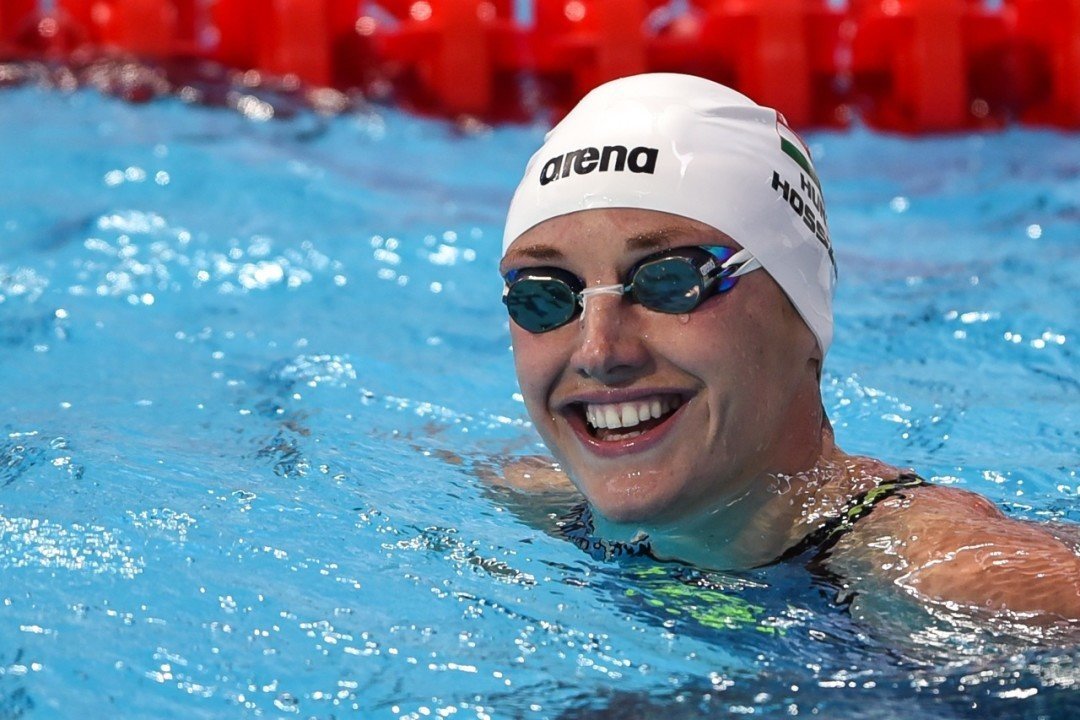SwimSwam Pulse is a recurring feature tracking and analyzing the results of our periodic A3 Performance Polls. You can cast your vote in our newest poll on the SwimSwam homepage, about halfway down the page on the right side.
Our latest poll asked SwimSwam readers to weigh in on the change in the FINA World Cup format from short course meters to long course meters:
Results
Long Course World Cups are a…
- good idea? – 53.2%
- good idea only in the Olympic year? – 34.2%
- bad idea? – 12.6%
The majority of voters like the change to the long course format, and only a small portion (about 93 total voters) felt it was a bad change for the World Cup series.
The upsides are obvious. The World Cup seems to be attracting better fields of athletes this year, as the long course format allows swimmers to use the meets as extra race preparation for next year’s Olympics and Olympic qualifying meets.
The long course format makes the results easier to put into context, something we’ve certainly noticed in our coverage of the first two clusters. Short Course meters is a format that’s sometimes harder to judge at first glance to see which swims were good and which ones were truly great. Even the short course meter world rankings are much less contested than their long course counterparts, so a long course #1 world ranking typically tells us more than its short course sibling.
For those with an eye always on the next Olympic Games, the 2015 World Cup tour has already provided some intriguing storylines. Emily Seebohm‘s amazing ability to hit 58s in the 100 back week in and week out provides some drama nearly a year out from when she’ll battle 2012 Olympic champ Missy Franklin. Former world record-holder Cameron van der Burgh‘s excellent breaststroking consistency at least suggests there’s an outside chance he challenges current world record-holder Adam Peaty for gold next summer when all the chips are on the table.
The only glaring downside to the switch has been the lack of world records. Through 5 World Cup events, not a single world record has been broken, compared to the 6 broken by this time on last year’s tour.
The $10,000 bonuses that go along with world records means the switch to long course has made it harder for athletes to earn money, though Katinka Hosszu and Daniel Gyurta were the only two to earn world record bonuses last year.
Maybe more interesting to fans are the 20-point bonuses in series points for breaking a world record. That was a wild card in the scoring system that allowed athletes to radically improve their standing with a single swim. Then again, any drama that could be present in the series point standings has been reduced dramatically by Hosszu being untouchable in women’s points, so the change to a long course format really hasn’t affected much there – in fact, it’s probably made things (relatively) closer with Hosszu not earning multiple world record bonuses each meet.
Check out the SwimSwam frontpage to vote in our newest poll, which asks about how much NCAA coaches should focus on long course swimming during an Olympic year.
FIND AND VOTE IN THE NEW POLL HERE, ON THE RIGHT SIDE OF THE PAGE ABOUT HALFWAY DOWN.
How much should NCAA coaches push long course in an Olympic year?
- Only for those athletes with a chance at making the team
- Push everyone
- Focus on yards and NCAAs

I think that the World Cup should alternate between long course and short course.
Long course world cups would be in odd numbered years, so swimmers can swim fats long course times immediately after the LC Worlds. It also would enable this “Olympic Prep” period of moderately fast swimming to prepare for an Olympics in the coming season.
In even numbered years it would be in short course, so swimmers are doing lots of work in the little pool leading up to short course world championships.
“Short Course meters is a format that’s sometimes harder to judge” haha thats easy to judge it’s short course yards thats extremely hard to judge
Depends on what you’re used to following, I suppose. In my mind, at least, long course meters is featured in a major international meet every year (Worlds in odd years, Olympics in Olympic years, Pan Pacs/Euros/Commonwealths in other years). You could say the same for yards with the NCAA Championships every year, though that’s certainly less-followed by international readers. Short course meters really only gets a big championship meet where everyone is tapered every other year with Short Course Worlds. Just less meets (and less recent meets) against which to reference times.
Not really, because we have years and years of hundreds of mid-season swims and championship season progressions from the NCAA.
Granted, it is often easier to translate how a SCM swim compares to long course compared to a SCY swim. But with short course yards, we know that swimming, say 18.9, is very fast for a college sprinter, and that is based on years and years of hard data from championship meets we know people tapered hard for.
I guess I’m saying that for the large portion of the swimming community that does not come from the US, yards swimming is very hard to judge and seemingly irrelevant because there are no major competitions that are contested in the yards format